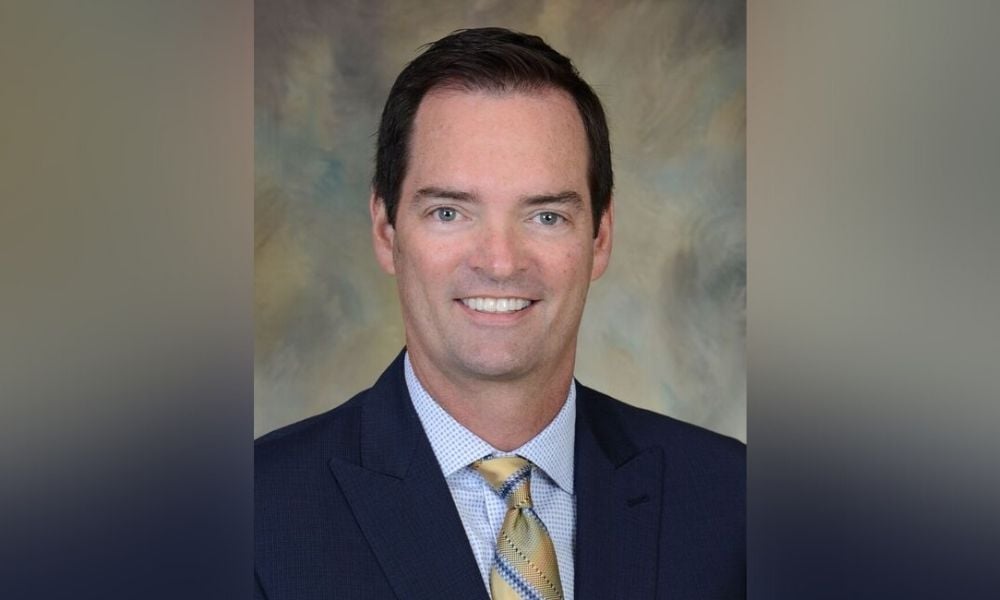VP of non-prime specialist says LOs are more interested in product than ever

Without doubt these are ‘interesting’ times for the mortgage industry.
With mounting interest rates, the threat of a looming recession, the virtual collapse of the refi market and some housing analysts saying that demand for homes is beginning to moderate, brokers need to have all their wits about them if they are to grow their business.
The shrewdest and most forward-looking LOs knew this long ago, but Tom Hutchens (pictured), executive vice president of production at Angel Oak Mortgage Solutions, has suggested that there is now a renewed sense of purpose among the wider broker community to push the envelope with new products - especially non-QM loans.
“Right now, originators fully embrace the need for non-QM, and we’re seeing it based on their desire to be educated,” he said. “We’re always out there, doing webinars and trainings, but the attendance and the registrations that we’ve had in the last two to three months is actually quite remarkable.
Read more: Five-step guide for success in non-QM
“Having conversations with loan officers, they know that refis are gone, so loan officers are just viewing non-QM as an alternative. There’s new business and more tools to purchase, and without it they feel like they’re going to be shortchanged.”
Refi volume may have tumbled by more than 60% in a year, forcing originators to focus even more on purchase volume, but even this is no guarantee of success.
Fannie Mae recently predicted that property sales would drop by 7.4% this year and by 9.7% in 2023. And when even a luminary like UWM’s Mat Ishbia acknowledges that the housing market will cool down later this year, it’s perhaps unsurprising that brokers are now looking at their options with a greater sense of urgency.
Hutchens confirmed that standard purchase loans were not necessarily the answer, either. “With agency and government loans, you can only place a borrower that fits into those tight agency boxes, and that’s when you put real estate agent referrals at risk if you can’t do it.
“If an originator down the street can help a buyer, that real estate agent might start sending all of their deals, their borrowers and buyers down the street. So, it’s pretty imperative that brokers have more tools in their tool belt.”
This is especially relevant as many Americans are sitting on more home equity than ever, he added.
Recent figures appear to confirm that claim. According to CoreLogic analysis, US homeowners with mortgages (about 63% of all properties) have seen their equity increase by a total of more than $3.2 trillion since the fourth quarter of 2020, representing a rise of 29.3% year over year.
As far as Hutchens is concerned, that simply creates more options for an originator.
“By having more tools, it’s not only purchase, brokers can expand their marketing efforts to more potential borrowers, including self-employed borrowers.”
Read more: Angel Oak Mortgage suffers net loss amid volatile market
Non-QM has traditionally been seen as the go-to option for self-employed borrowers, and it’s a sector that’s growing. According to a pre-pandemic projection from the US Bureau of Labor Statistics, the number of self-employed people was set to increase to 10.3 million by 2026. But as of February 2022, that number had already reached 9.98 million, representing a 4.59% annual increase.
Even though the figure is actually the second lowest in the last seven months, the projected estimates are not wide of the mark.
Hutchens said many of these underserved borrowers were also unaware of non-QM.
He said: “They haven’t really known that there are products available for them, because they’ve maybe been turned down in the past.
“A lot of them might think ‘well, I can’t sell my house because I can’t buy’. But if you provide an option to them to tap into that equity, that’s a whole market out there that is just very underserved. And that is the kind of the feedback that we’re giving and getting from loan officers that are taking these non-QM products. It’s allowing them to be a little more proactive to go out and find business.
“Access to mortgage financing is something everybody wants. I don’t think inflationary pressures are going to stop that, and I don’t think there’s going to be a crash in housing. The biggest driver is lack of supply and that’s not really a bubble.
“That’s because the fundamentals in today’s market are solid and underwriting standards have been solid.”



